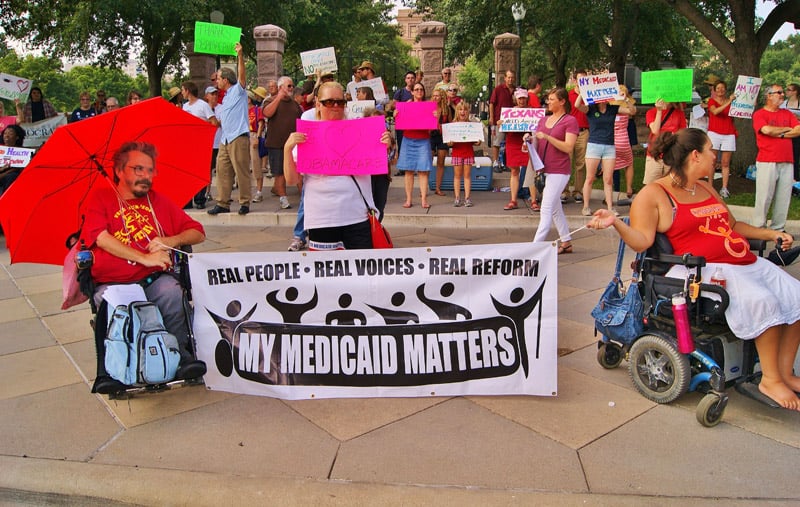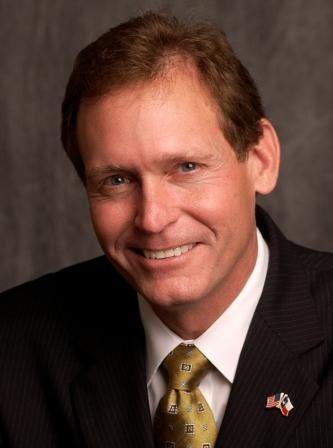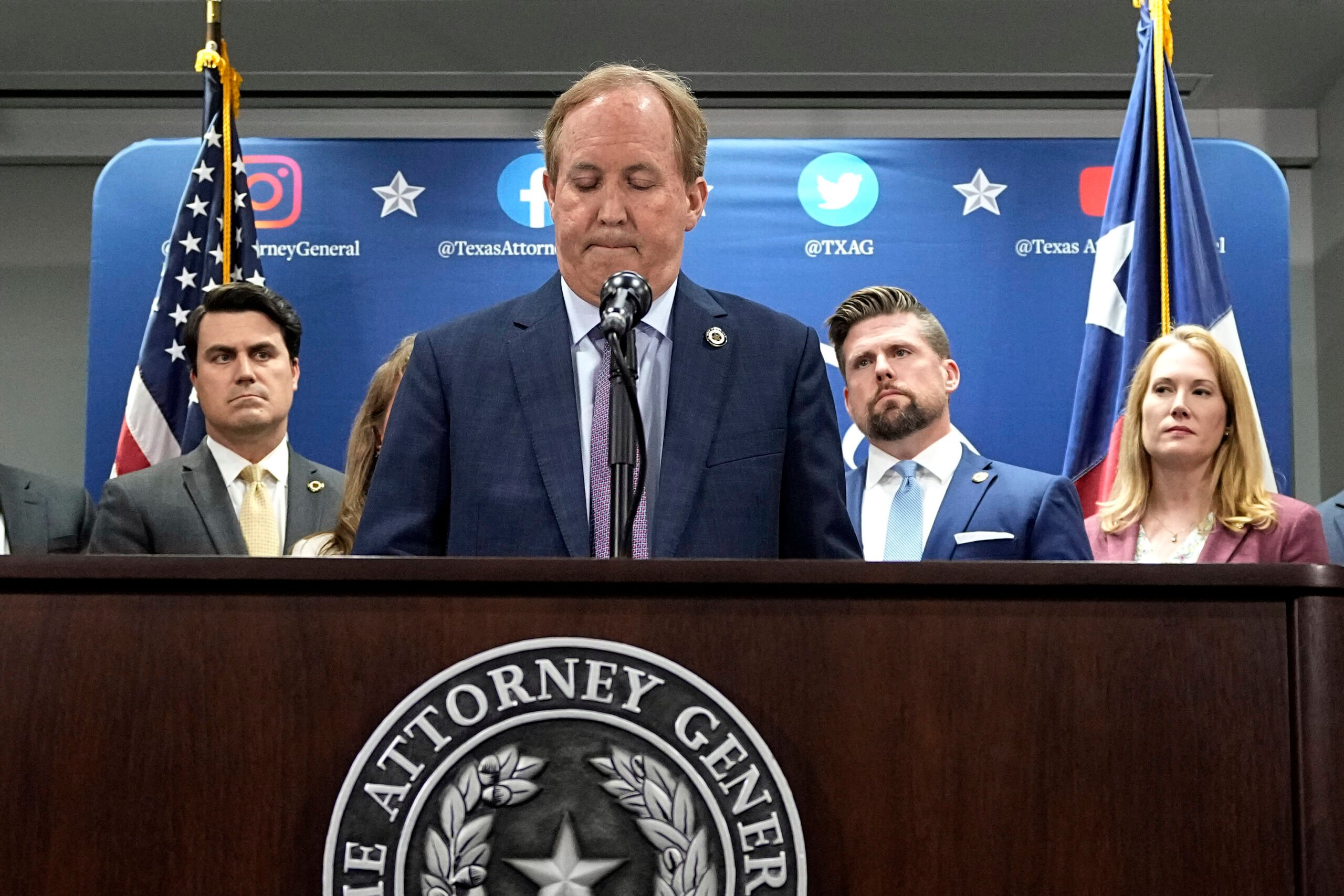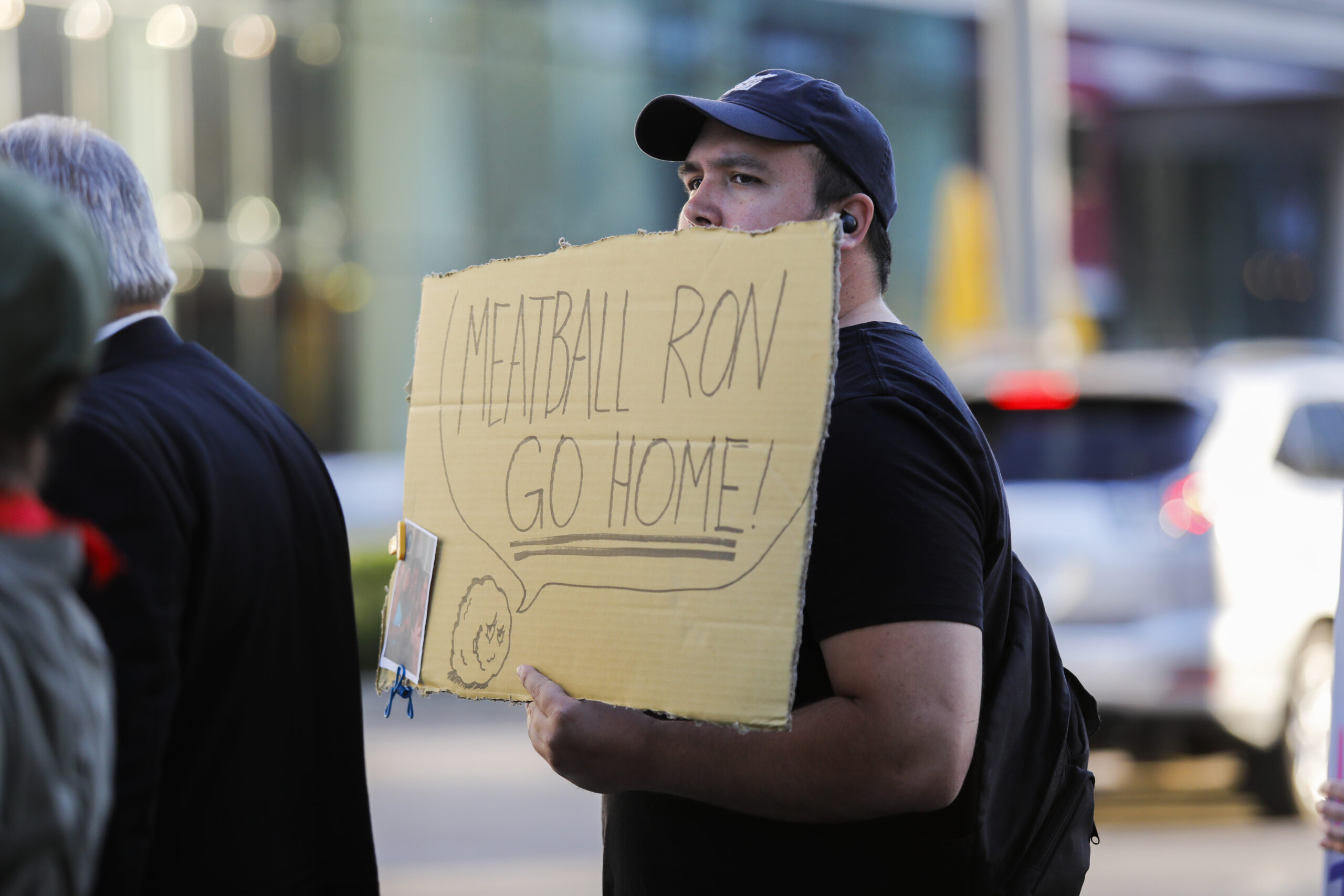
Q&A with Rep. John Zerwas on Lege Failure to Pass Healthcare Expansion

Above: Members of the Texas Chapter of ADAPT celebrate the United States Supreme Court’s upholding of the Affordable Care Act, also known as Obamacare, in front of the Texas Capitol in January.
The refusal by Texas lawmakers and Governor Perry to accept an expansion of Medicaid under Obamacare means the state forfeits $100 billion in federal money and suffers an estimated loss of $1.8 billion in taxes in the next four years, according to a recent report commissioned by Methodist Healthcare Ministries in San Antonio.
But the expansion isn’t just about money; it’s also about lives. Expanding Medicaid coverage could prevent an estimated 8,400 premature deaths each year, according to the report, which was authored by former Texas Deputy Comptroller Billy Hamilton. Still, the news failed to move legislators toward a compromise during the recent legislative session.
Beginning in January 2014, under the Affordable Care Act, an individual making more than $15,282 a year—133 percent of the federal poverty level—will qualify for sliding-scale premium assistance when he or she buys health insurance. But Texas’ poorest residents (with the exception of pregnant women and children) living below 133 percent of the federal poverty level will be out of luck.
Medicaid expansion was supposed to take care of those Texans living in poverty but a U.S. Supreme Court ruling gave state leaders the power to reject the expansion. Gov. Perry made his rejection of Obamacare and the Medicaid expansion a key point of his political strategy. “Perry’s staked his career on saying , ‘no’ to anything that comes from the Obama administration,” said Democratic state Rep. Garnet Coleman. “The politics of the day overruled limited income Texans. There’s nothing for them. They’ll just keep on getting the worst kind of care through hospital emergency rooms.”
Texans with chronic illnesses will continue to suffer, even die if they’re unable to find a charity program to help them. And Texas will continue to hold the dubious record of having the most uninsured residents in the nation.
For a month or two at the beginning of the 83rd legislative session—it now seems like years ago— health care advocates were hopeful that the Republican-controlled Legislature could craft a successful proposal to help Texas’ uninsured. Republican State Rep. John Zerwas, a physician from Simonton, led the charge with House Bill 3791, which he coined “The Texas Solution” to expanding health care coverage for up to 1.5 million Texans. Among other things, the bill would have emphasized the state’s request for a federal Medicaid block grant, identified Medicaid reforms that the state could implement and set up a program to draw on federal funds to help the uninsured find coverage in the private insurance market.
The bill was endorsed by a broad, influential coalition of supporters from the conservative Texas Association of Business to the interfaith advocacy group Texas Impact. During the bill’s committee hearing 30 people testified in favor of the bill, while just one person testified against it —Arlene Wohlgemuth, executive director of the Texas Public Policy Foundation, an Austin-based conservative think tank. The bill’s supporters were buoyed by HB 3791’s passage through the House Committee on Appropriations only to watch it falter after threats of a veto from Governor Perry and the belief among many conservatives that voting on anything to do with “Obamacare” would be politically radioactive in a Republican primary.
So what’s next? Will Texas really leave $100 billion in federal money on the table and as many as 1.5 million Texans uninsured? The Texas Observer spoke with Rep. Zerwas about the trials and tribulations of getting his Medicaid bill through the Legislature and the future of Texas’ uninsured.

Texas Observer: During the legislative session you spent an enormous amount of time trying to hammer out a deal on expanding health insurance coverage that other Republicans would embrace. What were the discussions like with your House colleagues about the bill?
Rep. John Zerwas: It was interesting. We actually did some polling of the House in general, all the members of the House to determine how they would fall in on this vote. We clearly would have had the votes to pass the bill out of the House, short of some procedural or technical issues that might have brought it down. But the real problem came in terms of just trying to get some of the more conservative members who were afraid of being framed as Obamacare facilitators in this deal, getting them to recognize that the bill wasn’t facilitating Obamacare. It was creating a way for us to provide insurance to a group of people that there is no provision for. We tried to help people understand that what the bill does is it basically gives instruction to the commissioner to go negotiate something with Medicaid with CMS along the lines of the principles that we baked into the bill.
TO: Did the threat of a Perry veto harm passage of the bill?
JZ: Well, probably. I think with any difficult issues there is always that sense of, “Am I going to just take a vote on something that ultimately the governor is going to slap down?” There was some of that, but it wasn’t an overwhelming amount and my thoughts were the Governor probably would veto it. One of the primary issues I had during the legislative session on this subject was that this is really a headline issue for the legislative session. There really wasn’t an opportunity to have legislators’ voices heard on this subject, which therefore is the public’s voice on this subject.
So, even if the bill got debated and voted down in the house then so be it. We fulfilled what I think is one of our responsibilities to the public to take on difficult issues, have a debate, and move forward, whether it’s voted up or voted down the conversation occurred. If it passed and went to the Senate, they could likewise have that debate and vote it up or down and again the public’s voice is ultimately heard through the legislators in the Senate. And then if it had happened to get passed and both chambers voted it out and it went to the Governor and the Governor vetoed it, we can say we fulfilled our responsibility to take on one of the tough issues of the session. Let the voices be heard on it and if the Governor doesn’t want to let it pass, then that certainly is his prerogative. But at least we could have said that as representatives and senators we took up the issue, we debated it and we let the votes fall where the votes fall.
TO: Why were legislators so afraid of the Governor?
JZ: I don’t know that they’re afraid of the Governor, per say, as much as they are afraid of this issue. And the reason that people run scared from this issue is the way that it can be used to frame you politically. I think a lot of people felt somewhat vulnerable if they were to support any type of a position on this so-called Medicaid expansion that it would come back to haunt them in their primary. I have to say that in my district if somebody challenged me on that, then I feel very comfortable in explaining the rationale and what the bill really says and what the bill doesn’t say. Again, I’m a four term incumbent, I have a relationship in my district that perhaps allows me to manage issues like that. Some people may not enjoy that luxury, they may be very early in their term and they may feel very vulnerable to being characterized as supporting an issue like this that could come back to haunt them. That’s something that individual representatives have to make a call for themselves, that’s not something I can do for them.
TO: Did you have a lot of in depth conversations with colleagues about voting for the bill?
JZ: Yes. Some were philosophically very opposed to accepting any more federal money in order to provide health care to more people. And I told them, “Well, then you won’t be for this bill, period. If that’s philosophically the view you have, then this bill will violate that principle.” And likewise, if you’re somebody who says, “this is going to frame me as somebody that is promoting Obamacare and that could come back to haunt me in my primary.” Then, I would say, “well, only you can make that decision, just understand that that’s not what the bill is doing or does.” Then they’d say, “I read your bill and I understand it, and I don’t necessarily disagree with it, but I’m pretty sure that an opponent will frame this around me and I’ll have to deal with it as a newly elected representative.”
So, there was some of that. When we did the polling on the bill though we found that actually we could have passed the bill pretty easily, but unfortunately because of some of the issues around it in Calendar’s committee it got caught up and was never set on the calendar.
TO: Would it be the responsibility of the chair of that committee to set it?
JZ: Well, the chair ultimately signs off on it but it’s a unique committee in that any one person that’s opposed to that bill can tag it. That would preclude that bill from being recommended to be on the calendar. So I’m sure there were enough people that had concerns about that bill that ultimately they tagged it until the deadline expired, and it never made it. It wasn’t the kind of bill that you could sort of mold into an amendment or anything like that, so ultimately when the deadline passed on house bills being heard on the floor it was dead in the water.
TO: Did you have any conversations with the Governor or with his office about the Medicaid legislation?
JZ: We had had conversations with the governor’s office earlier on in the session and they were more just “this is what we’re thinking,” that kind of thing. I never had any face to face with the governor on the issue.
TO: As a physician, have you seen many patients who didn’t have health insurance?
JZ: Oh yeah, many. I mean I live in Houston where one in three people are uninsured.
TO: Have you had patients die because they didn’t have health insurance?
JZ: No, the one thing about the United States is everybody can access healthcare if they truly need it. We’ve got a number of ways that people can access healthcare if they are uninsured and somewhat indigent. We’ve got Federally Qualified Health Centers that are meant to help provide an avenue for people to access health care. There’s also a national law that prohibits hospitals from turning patients away from the emergency room if they truly need emergency care. Those provisions are out there.
I think the difference that you see in people that have health insurance vs. people that don’t is that they can more easily and readily access health care than those that do not have insurance. So, your people with higher blood pressure get better blood pressure management, your people with diabetes get better diabetes management; your cancer patients get diagnosed earlier as opposed to a later stage of cancer.
TO: You had a lot of support for your legislation, but it still didn’t pass.
JZ: I agree, that’s how I commonly framed it when people asked me about it. I said, “just talk to the people back home, and I think what you’ll hear in great harmony is everybody saying, ‘if you’re not going to expand Medicaid, do something with those federal provisions that are offered to remedy this situation.” I think people just got a little concerned about the way some think tanks—I’m not even sure it’s fair to call them that—the way certain groups were framing this issue and characterizing certain representatives based on where they would stand on this issue. I was willing to take the arrows on it because it was a very simple thing for me to explain. I truly believe that my constituents would listen to that argument and say, “that sounds like a very reasonable and logical reason to pursue this course.”
TO: How were these groups sending out their messages?
JZ: It largely came out through emails, blogs and things of that nature. Some of the people that were critical are typically some of the more conservative bloggers out there. Michael Quinn Sullivan is known for that, but he was largely irrelevant during this session. But there are people that are influenced by his perspective on things. Unfortunately, this is one that he totally mis-characterized and got people running scared. When the reality is if you went back to your district— most don’t even know who Michael Quinn Sullivan is, if they do then they don’t really care.
TO: Was the Texas Public Policy Foundation the only one to publicly testify against the bill?
JZ: Yes, and I’ve shared this often with people, one of my colleagues who’s a conservative Rep. Drew Darby was sitting on the committee that was taking the testimony and he asked the director of the TPPF, “what is it that you don’t like about this bill? Because frankly everything in it you could have written.” And she didn’t deny it. Her position was “I just don’t think we should pursue anything until the federal government gives us a block grant for the current Medicaid program.”
Probably that’s the one point that I differ with the TPPF is that even though I am a strong advocate for the block grant as a way to help us rein in the cost of Medicaid, I’m also a realist to know that it probably isn’t going to happen and in the meantime we ought to try to do some things in delivering a different model for this indigent population, and that the federal government is willing to provide that money to us to do it, which is ultimately our money anyway. So, my feeling on this really was let’s look at this newly eligible population almost as a pilot study and let’s try doing something different with them. And maybe if we can prove that that works then maybe the federal government at some point will give us that block grant, and we’ll be able to convert the entirety of the Medicaid program to the solution that works best for Texas.
TO: Did TPPF talk to you before they testified against the bill?
JZ: We reached out to them but they said that they weren’t going to be supportive of the bill despite the fact that we emphasized a lot of things in the bill that were important to TPPF, such as the block grant. We spent time talking about what the Texas Solution could be and should be, and then we put in a legislative oversight committee to continue to monitor the progress. So, all of those things are very consistent with what TPPF would support.
TO: So what’s next for Medicaid expansion? Is there still a chance that it could happen?
JZ: Currently, there’s nothing that would prevent the Governor and the [HHSC] Commissioner in going forward to negotiate some alternative for this. Whether they would ultimately have to bring that back to the legislature for approval is questionable. What we had in at least one of the riders in the senate side before it got extracted in conference was that the LBB could be the voice of the Legislature if we were not in session. That’s what I would have liked to have seen at least somewhere in the law is that if there is an effort by the Governor and the Commissioner to negotiate something that the voice of the Legislature be heard through the Legislative Budget Board. But we don’t even have that now. So largely, we came out of the session without any kind of significant direction to the commissioner as to what we would like to see happen with regard to any kind of expansion population out there.
TO: Are you frustrated about how things turned out on this issue?
JZ: Yeah, I found it one of the more challenging things. I couldn’t deal with what somebody might view as the political repercussions in their district. If they felt like it was going to be something that would prevent them from getting reelected then you know there wasn’t much I could do about it. And then also if somebody is philosophically opposed to utilizing federal money for the provision of healthcare or any additional healthcare then I’m not going to be able to move that person either. But I also accepted that as we did the polling we could have gotten easily 85 votes out of the Legislature and passed that over to the Senate. That was probably the frustrating thing for me. But I also felt like it was just important for us to have the conversation on the floor of the house. I think we fell short of what the public’s expectations would be of us by not having a formal debate around this particular topic.


